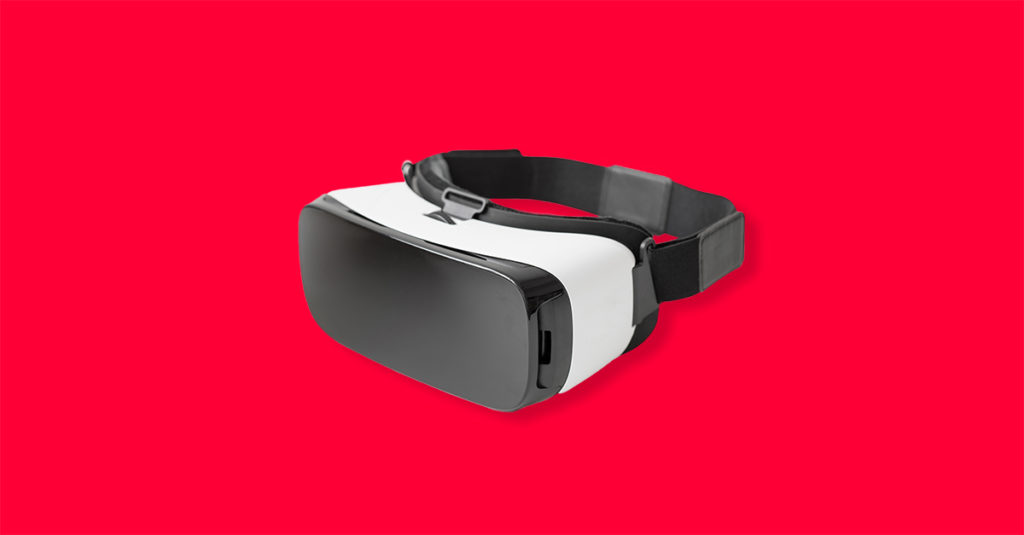
What’s the Deal With the Metaverse? What’s It Going to Mean for Me?
The “metaverse” is getting talked about a lot right now. Just last year, Facebook rebranded as Meta, and Microsoft acquired video game maker Activision Blizzard to “get a foothold in the metaverse.” But for all the talk (and video demos from Mark Zuckerberg), it’s not always clear what the metaverse actually is and how we’ll all participate in it. Let’s discuss.
What is the metaverse?
Right now, nobody can really agree on what the metaverse is because it hasn’t been built yet. But there’s a lot of speculating about what it will be.
Remember how in the late ’90s everyone was talking about “cyberspace” and coming up with wild and wacky ideas for how it would take over the world? Over the next 20 years, out of all those ideas (good and bad) the internet as we now know it took shape.
Right now, we’re at that late-’90s stage of things with the metaverse. A lot of very smart people think it will be the next evolution of the internet, but there isn’t a lot of agreement on how it will all shake out.
There are, however, a few common threads. In particular:
- The metaverse will be built around augmented reality (AR) and virtual reality (VR). The idea is that you’ll be more “present” in the metaverse than you are browsing the web, because you’ll use some kind of goggles or headset to explore it, giving you an embodied presence or avatar.
- The metaverse will be always-on, permanent and capable of hosting tens of thousands of people, unlike many computer games. When you logout, things will keep happening in the metaverse.
- The metaverse will be a virtual version of the real world. This means there will be “physical” space in which you (or your avatar) can move around, as if you’re physically there, rather than, say, clicking on a browser.
- The metaverse won’t just be a game. Companies like Meta and Microsoft are betting on the idea that it will be used to host meetings and events, and that there will be an economy where people can buy (and sell) things. Unlike the internet, the metaverse will be built with costs for admission and participation.
- The metaverse will be an extension of the internet we know, rather than a total replacement. For now, we still want to have multiple options for accessing digital information and experiences.
The most idealistic vision of the metaverse is that it be one big virtual world, more like a digital version of the real world than the internet, and not a load of separate, company-specific metaverses. Pulling this off would require Meta, Microsoft and any other companies to collaborate rather than compete.
How will the metaverse work?
Again, the metaverse as most people imagine it doesn’t exist yet, but we have some pretty good models for how it could work: video games.
Minecraft, Fortnite and Roblox all offer a lot of what the metaverse may one day do, having large, always-on virtual spaces where people can move around. They’re accessed through the internet (and can be explored with VR goggles). While all are games, they’ve also all done things like host concerts. Lil Nas X played a Roblox gig, while Marshmello hosted the first Fortnite DJ set.
Of course, no large company has yet replaced daily Zoom calls with Minecraft meetups, so it’s a stretch to say any of these games are really metaverses. But they’re metaverse-like, and they’re the model most commonly cited for what companies like Meta and Microsoft are trying to build for work and other non-gaming activities.
How will I access the metaverse?
In the most idealized predictions of the metaverse, it will be always accessible through the smart AR glasses everyone is wearing. This seems a little farfetched. But here are two predictions:
- The best way to access the metaverse (and the way most companies will want people to do it) will be with VR goggles or AR glasses. Meta, after all, owns VR goggle maker Oculus.
- So that the metaverse is accessible to enough people, you’ll also be able to access it, at least initially, using your smartphone or laptop. You can play Minecraft in VR, but you can also play it using any other device.
In either case, though, you’ll be accessing it over the internet. So, if you have a slow connection, it’s going to make embracing the future a lot harder. Fiber optic internet is growing in importance, another reason internet service providers are expanding their fiber footprints, to give customers the highest-quality access to these new technologies as they’re mainstreamed.
When will the metaverse happen?
The metaverse, like the internet, isn’t going to just launch one day. It’s part of a collection of technologies including cryptocurrencies and NFTs (non-fungible tokens) that are trying to shape the future of the internet.
Over the next few years more and more metaverse-like services will launch, and people and businesses will start using them more. Some will be successful, and some won’t. Some are already successful: A handful of companies host company happy hours in a metaverse, for example.
Then, at some point, if it continues to build traction, the metaverse as a concept will start to have an established meaning, just as the internet went from a speculative fringe service used by geeks to an essential part of most people’s professional and personal lives.
What’s the metaverse going to mean for me?
A lot of people have ideas about what potential the metaverse holds, but as yet, no one really knows. Some of the ideas that companies like Meta and Microsoft are working on are:
- Attend meetings and conferences in a virtual meeting room or conference center where you can move around and interact with different people.
- Go shopping in virtual stores, where you can stroll the digital aisles.
- Have new flexibility. Be able to hop from playing a game to hanging out with friends at a virtual concert without having to change app or device.
There are also companies out there working on totally new and original ideas for the metaverse, which are bound to be exciting. But for now, all we can say is the metaverse is maybe/probably coming—and we’re here for it.




Join the conversation